Programmatic Advertising Increases Customer Value for Insurance

Although labelled as a buzzword, the ‘digital transformation’ has made an immense impact in many areas of business, including the insurance industry.
Disruptive innovations have placed further competition on an already highly competitive market, with insurers looking for new and efficient ways to create value for their consumers.
By investing in smart automation technologies and understanding the power of behavioural analytics, programmatic advertising has become a promising addition to the marketing mix and has already been proven to be a top converting digital marketing and advertising service for many within the industry.
What is programmatic advertising?
Programmatic advertising has become a highly sought after and widely talked about digital marketing technique in recent times, due to the technology’s ability to utilise automated and instantaneous behavioural analytics and purchase intent that helps to serve the best possible advertisement, to the right person, at precisely the right time. It is believed that this highly targeted, and precise method is, therefore, more relevant for the consumer, leading to improved engagement, higher conversions and a significant reduction in wasted advertising expenditure.
However, programmatic is actually much more complex and sophisticated than this. In fact, programmatic has been defined as an algorithmic media buying and selling process to place advertisements on digital channels, such as online, television and out-of-home displays. The highly complex algorithms gather various data points about a consumer, including their online behaviours, age, gender, location, and purchase intent to deem whether a particular advertisement and it’s creative would be relevant and engaging to that particular individual. During the immediate and prompt process, the software automatically purchases, places and optimises media inventory through a bidding system to deliver the advertisement in the best possible place for that individual. Therefore, the method results in the delivery of highly precise and personalised advertisements in a more efficient way and at immense scale compared to other digital marketing methods.
How is programmatic media buying beneficial for the insurance industry?
A 2017 report by Ernst and Young identified big data and analytics holds the key to creating personalised user experiences in today’s highly digital society. However, the global advisory firm also noted that a common shortfall of many insurance providers is their lacking use of data and analytics to provide real value for consumers and to improve the customer journey. The company goes on to recognise that analytics “listens and learns” customer inputs to identify patterns to provide brands and insurers with potentially profitable opportunities. In fact, as programmatic advertising is highly reliant on data and analytics to accurately place relevant advertisements to a specific consumer in an appropriate touchpoint along their consumer journey, the method increases conversion rates and helps transform consumers from leads into customers.
Furthermore, programmatic advertising and media buying takes away a one-size-fits-all approach that many other traditional and even digital advertising methods adopt. For example, imagine, you have two consumers researching online about increasing the coverage on their current policy, while another consumer is simply looking for quotes. Perhaps both individuals find the companies social media page with content focusing solely on attracting new consumers with competitive pricing and advertising messages. While both consumers have two different intents, they both have the exact same consumer experience as the social media and content marketing strategy fails to address behavioural context. It’s such experiences that fail to engage consumers and can result in wasted time and money as insurance marketers aim to target multiple consumers on a large scale.
Programmatic advertising and programmatic media buying is an excellent solution to this common problem and is exactly why expenditure in the area has grown enormously. In fact, according to Adobe Think Tank, it is predicted that by 2020, 80% of all advertising will be an automated process. The immense growth can be attributed to the increased ability for insurers and marketers in any industry, to tailor customer experiences in ways that have before been impossible at such a large scale. Programmatic advertising and marketing enhances brand experiences and ensures that advertisements are highly relevant and targeted to individuals, rather than an audience profile.
This individualised and personalised approach to marketing communications is increasingly important, as consumers are increasingly blocking ads that they don’t deem relevant. In fact, consumers are even more likely to provide brands with data if they will, in turn, be receiving something valuable to them. In this case, by collecting a consumer’s data, they will be served with more relevant advertisements that address their needs and wants. Furthermore, a study by Relevance identified that personalisation has the ability to deliver 5-8 times the ROI on marketing spend, can even lift sales by 10% or more and is even believed to be a great tool in influencing behaviours.
Personalisation and relevancy have become important competitive differentiators for the insurance industry as consumers are increasingly inundated with marketing messages from multiple brands in their digital habitats. While most consumers would simply switch off, or even worse, block the advertisements altogether, programmatic advertising promises greater relevancy with tailored targeting. The highly sophisticated method and its complex algorithms collect consumer data based on their online behaviour, intent and demographics to determine the best advertising message for them, leading to increased relevance, elevated engagement and improved conversions. Ernst and Young even stated that insurance consumers are increasingly benefitting from the efficiency of automation and expect tailored experiences. As automation and analytics become more important for the insurance industry, programmatic advertising is just one of many processes that utilises such technology to help create value and improve the customer experience in a more efficient manner.
At RGC Digital Marketing, we are a full-service Digital Agency based in Sydney and offer programmatic media service with our in-house trading desk to connect consumers to brands in a more relevant, precise and efficient way. To find out how our programmatic media buying agency could benefit your insurance brand, please contact Richard on (02) 8883 2988 or email richard@rgcadvertising.com.au


